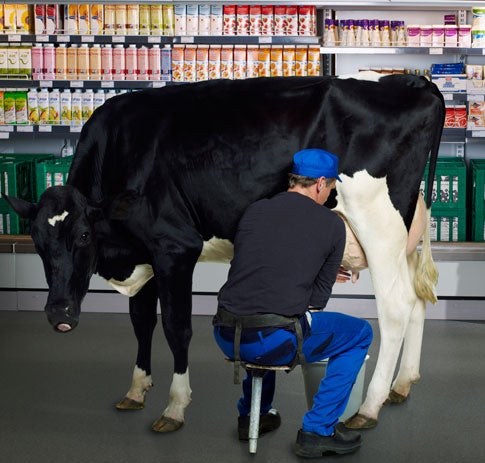Why Does Organic Milk Have a Longer Shelf Life Than The Regular Kind?
Popular Science has all the delicious answers

It all has to do with where the cow was milked. “Organic milk often has to travel thousands of miles to reach distribution points,” says Dean Sommer, a cheese and food technologist at the Wisconsin Center for Dairy Research at the University of Wisconsin. To survive the journey and leave time to spare in the fridge, farmers pasteurize organic milk at higher temperatures than conventional milk.
Nearly all milk is pasteurized, or heat-treated, to kill off disease-causing microbes. Heating organic milk upward of 200°F instead of the typical 161° destroys more of the organisms responsible for spoiling milk. With those bugs knocked out, organic milk lasts 25 to 40 days longer than the ordinary stuff.
But there’s a catch. The extra heating is expensive and can give the milk “a cooked or scorched flavor,” Sommer says. And be sure to drink up once you crack the carton. Exposed to air, organic milk goes bad just as quickly as any other milk.
Submit your science and technology questions to fyi@popsci.com.